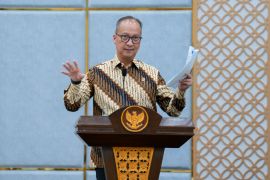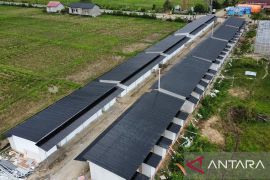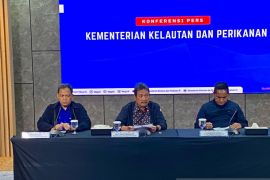"We set a very ambitious target at 75 percent by 2019," Coordinating Minister for Economic Affairs Darmin Nasution said here, Friday.
In order to achieve 75 percent of inclusive financial inclusion by 2019, 51,822,431 adults will have to be included into the system. Therefore, the government has devised five pillars of the National Inclusion Finance System (SNKI).
The five pillars are providing financial education, giving community property rights in the form of land certification, providing intermediation facilities and financial distribution channels, protecting consumers, and providing financial services in the government sector.
"For the government sector, the financial services are under the Ministry of Social Affairs and Bank Indonesia (BI), in which BI plays its role in payment system," Darmin said.
Earlier, the government established the National Council of Inclusive Finance following the Presidential Regulation No. 82 of 2016 on the National Strategy for Inclusive Finance.
Meanwhile, Deputy for Coordination of Macroeconomic and Financial Sector at the Coordinating Ministry for Economic Affairs, Iskandar Simorangkir, said the government has devised a strategy to accelerate the achievement of financial inclusion targets.
The strategy is in the form of financial innovations that can reach the entire community, expansion of financial services, improvement of infrastructure that supports financial inclusion, increase awareness and financial literacy and acceleration of property rights certificates issuance that can be used as collateral.
Increasing Indonesia`s inclusive financial index is expected to have a positive impact, especially for people in the low-income bracket.
"SNKI is not just a number, but it aims more to improve people`s welfare," Simorangkir said.
(T.SYS/B/KR-BSR/B/H-YH)
Reporter: Antara
Editor: Heru Purwanto
Copyright © ANTARA 2017











